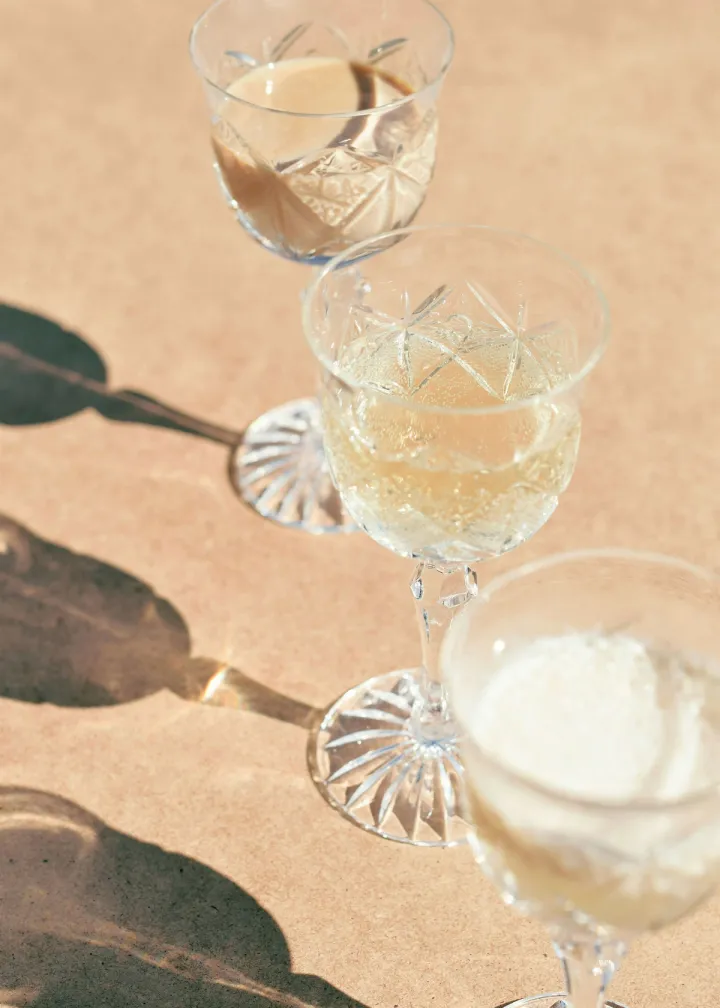
How Does Alcohol Affect My Sleep? A Dietitian Weighs In
Is wine worth losing sleep over?
While a glass of red wine with dinner can seem like a harmless way to relax after work, alcohol affects the body in many different ways. The long-term health effects of chronic alcohol consumption range from liver disease to stomach ulcers, but drinking can also affect the body in the short term.
One of the main bodily functions alcohol can affect in the short term is our sleep. So, the question is, how does alcohol affect our sleep?
The truth is, even just a couple of drinks can negatively impact the quality of your sleep. So if you are going to drink alcohol, consider your timing. The body needs time to process the alcohol before sleep, and while the processing time of alcohol will differ from person to person, a rule of thumb is one hour to process one standard drink.
According to the Australian government guidelines, healthy men and women should drink no more than ten standard drinks per week and no more than four standard drinks on any one day to limit the damaging health effects of alcohol. While alcohol in moderation can be an enjoyable way to relax, it is helpful to keep limitations in mind for the sake of your health.
Read on to discover how alcohol can impact your nightly sleep.
Alcohol lowers your sleep quality
It's true that alcohol can make you drowsy and could feel like it helps you fall asleep, but the quality of the sleep is not the same as that which you get sans alcohol. You may find that when you have been drinking, you frequently wake in the middle of the night and this is not an unusual side effect of alcohol.
Alcohol consumption increases a particular ‘sleep-inducing’ brain chemical, which hastens the onset of sleep. Unfortunately, though, this chemical doesn’t hang around and as a result, you are more likely to wake up before you’re well and truly rested.
Alcohol hinders your REM sleep
Alcohol also has a large effect on our different sleep phases or cycles. These phases are called REM (Rapid Eye Movement) sleep, where most of our dreaming, memory consolidation and learning occurs, and non-REM sleep, where our brain activity is at its lowest and it helps us feel refreshed in the morning.
Alcohol blocks REM sleep, aka the restorative kind of sleep, which can result in waking up not feeling rested, despite potentially having slept ‘enough’ hours.
Alcohol can cause snoring
Not only does alcohol affect the quality of your sleep, but it also acts as a muscle relaxant. This relaxant effect on the throat muscles can contribute to snoring and sleep apnoea, which in turn reduces sleep quality.
The takeaway
Alcohol may cause you to relax, but it can disrupt the sleep cycle and decrease sleep quality. After a few hours of sleep, alcohol can cause you to wake up and have a difficult time going back to sleep, so take this into consideration when having your next post-work tipple.
Chloe is an Accredited Practising Dietitian (APD), Advanced Sports Dietitian and founder of Verde Nutrition Co. You can follow her on Instagram here and at Verde Nutrition Co here.
Jessica is an Accredited Practising Performance Dietitian, Coach and Speaker specialising in nutrition and high-performing behaviours. You can follow her on Instagram here and via her website here.
If you are in Australia and seeking alcohol-related support, counselling, or information, here are the some resources recommended by the Department of Health. If you or someone you know needs help, phone Lifeline on 13 11 14, or Beyond Blue on 13 11 14. In an emergency, call 000. If you are in the United States, here are some resources recommended by the National Institute on Alcohol Abuse and Alcoholism.
Enjoyed This?
Discover more sleep health articles.









